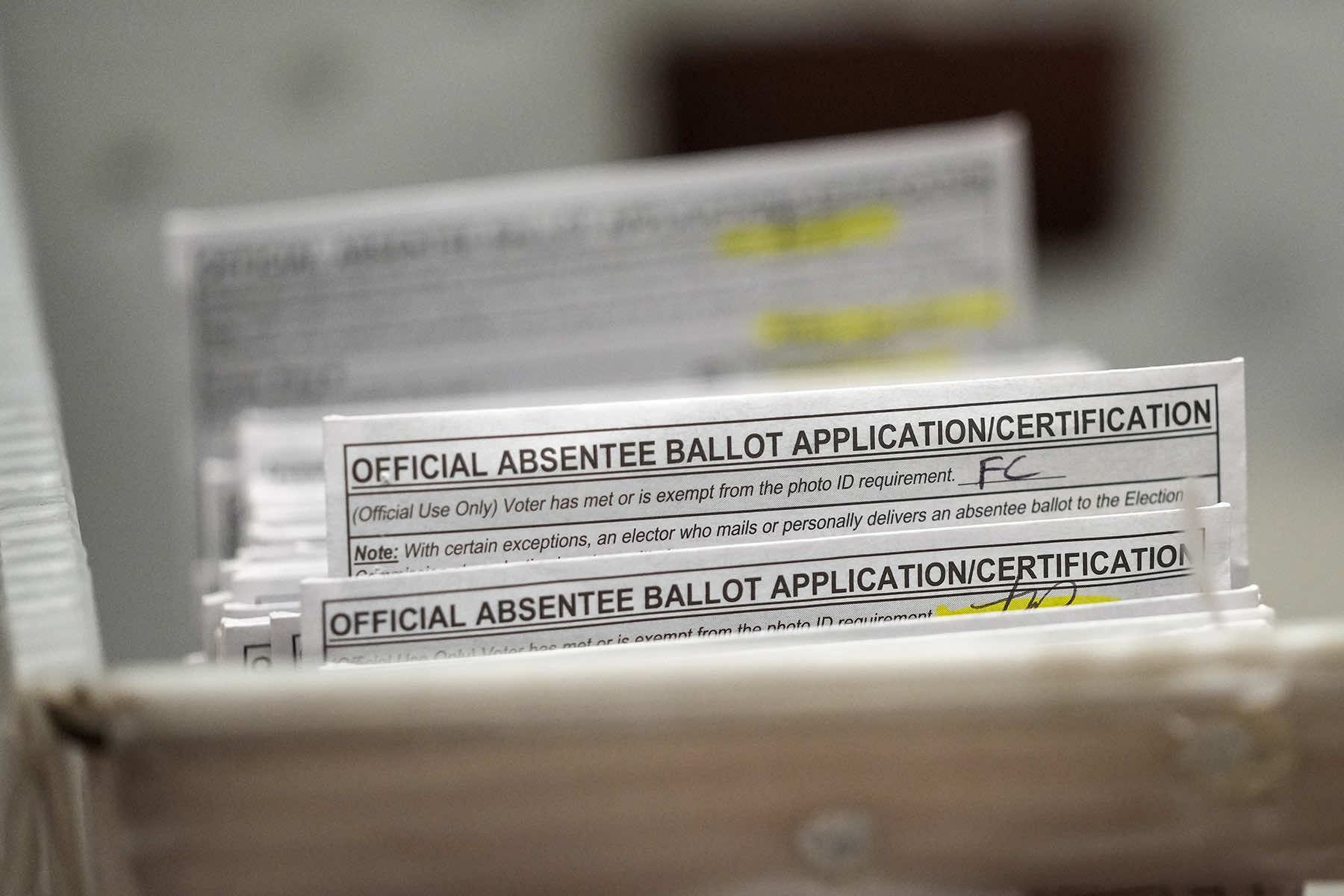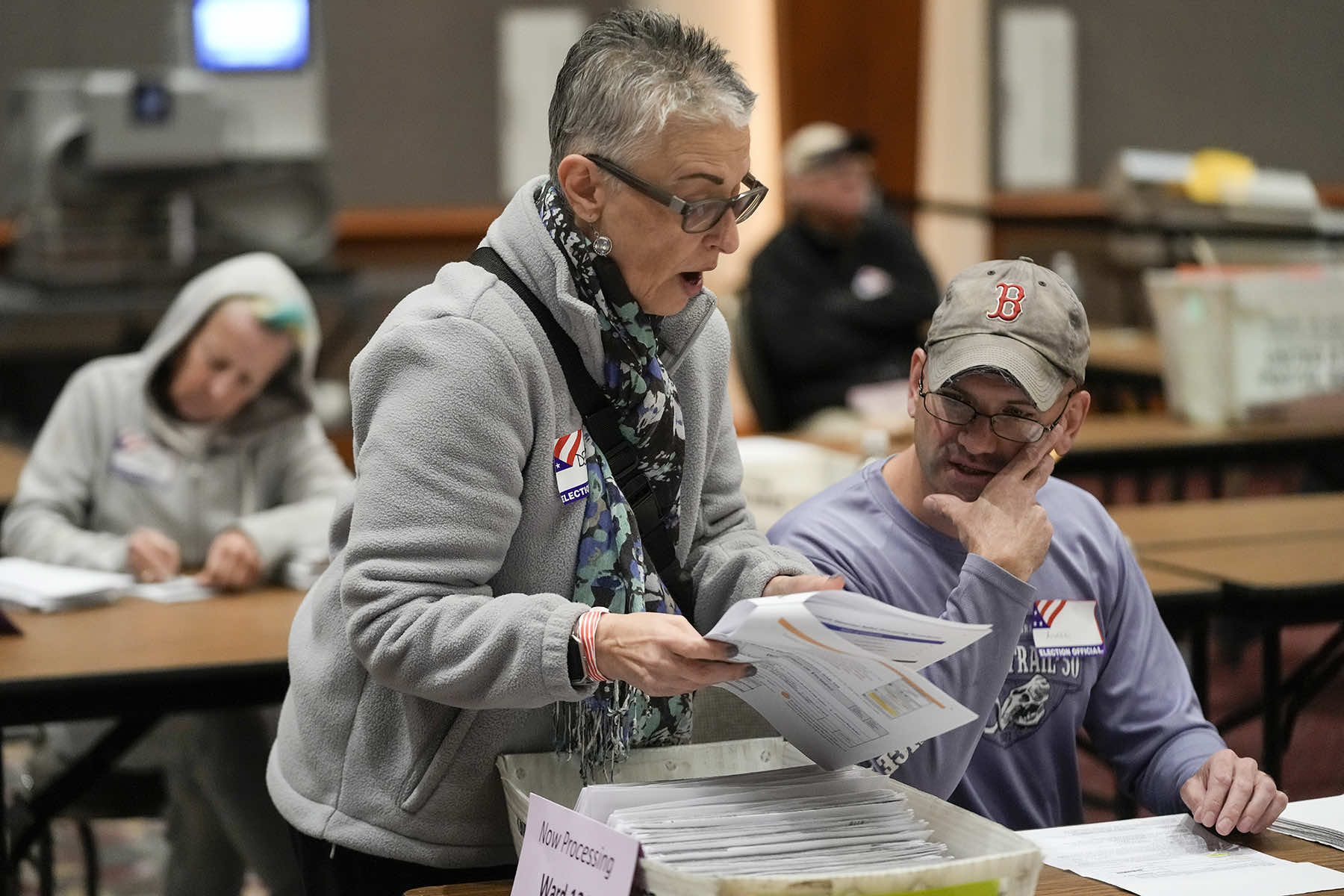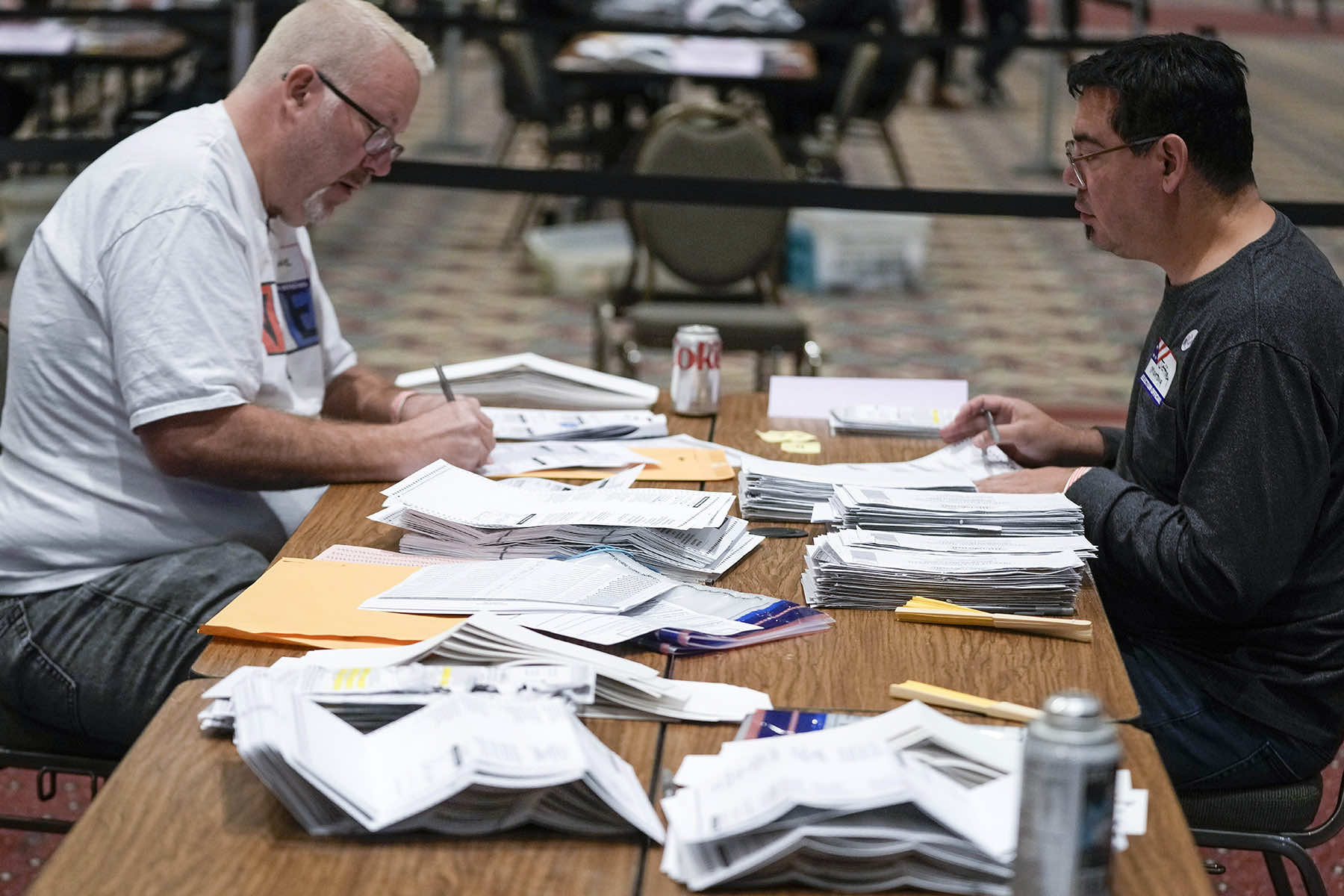
Ohio’s restrictive new election law significantly shortens the window for mailed ballots to be received, despite no evidence that the extended timeline has led to fraud or any other problems, and that change is angering active-duty members of the military and their families because of its potential to disenfranchise them.
The pace of ballot counting after Election Day has become a target of conservatives egged on by former President Donald Trump. He has promoted a false narrative since losing the 2020 election that fluctuating results as late-arriving mail-in ballots are tallied is a sign of fraud.
Republican lawmakers said during debate on the Ohio legislation that even if Trump’s claims aren’t true, the skepticism they have caused among conservatives about the accuracy of election results justifies imposing new limits.
The new law reduces the number of days for county election boards to include mailed ballots in their tallies from 10 days after Election Day to four. Critics say that could lead more ballots from Ohio’s military voters to miss the deadline and get tossed.
This issue isn’t confined to Ohio.
Three other states narrowed their post-election windows for accepting mail ballots last session, according to data from the nonpartisan Voting Rights Lab. Similar moves pushed by Republican lawmakers are being proposed or discussed this year in Wisconsin, New Jersey, California and other states.
Ohio’s tightened window for receiving mailed ballots is likely to affect just several hundred of the thousands of military and overseas ballots received in any election. Critics say any number is too great.
“What kind of society do we call ourselves if we are disenfranchising people from the rights that they are over there protecting?” said Willis Gordon, a Navy veteran and veterans affairs chair of the Ohio NAACP’s executive committee.
Republican state Sen. Theresa Gavarone, who championed the tightened ballot deadline, said Ohio’s previous window was “an extreme outlier” nationally. She said Ohio’s military and overseas voters still have ample time under the new law.
“While there is certainly more work to do, this new law drastically enhances Ohio’s election security and improves the integrity of our elections, which my constituents and citizens across the state have demanded,” she said.
Republicans’ claims that Ohio needs to clamp down in the name of election integrity run counter to GOP officials’ glowing assessments of the state’s current system. Ohio reported a near-perfect tally of its 2020 presidential election results, for example, and fraud referrals represent a tiny fraction of the ballots cast.
Board of elections data shows that in the state’s most populous county, which includes the capital city of Columbus, 242 absentee ballots from military and overseas voters were received after Election Day last November. Of that, nearly 40% arrived more than four days later and would have been rejected had the new law been in effect.
In 2020, a federal survey administered by the U.S. Election Assistance Commission found that Ohio rejected just 1% of the 21,600 ballots cast by overseas and military voters with the 10-day time frame in place. That compared with 2.1% nationally, a figure attributed mostly to voters missing state ballot deadlines.
All states are required to transmit ballots to registered overseas and military voters at least 45 days before an election, or as soon as possible if the request comes in after that date.
Former state Rep. Connie Pillich, an Air Force veteran who leads the Ohio Democratic Party’s outreach to veterans and military families, rejects arguments that the relatively small number of affected ballots is worth the trade-off.
“These guys and gals stationed overseas, living in the sandbox or wherever they are, doing their jobs, putting themselves in harm’s way, you’re making it harder for them to participate,” said Pillich, who led an unsuccessful effort to have GOP Gov. Mike DeWine veto the bill.
“I can tell you everyone I’ve talked to is livid and upset,” she said.
Those familiar with submitting military ballots said applying for, receiving and filling out a mailed ballot requires extra time for those who are deployed. Postal schedules, sudden calls to duty, even extra time needed to consult family back home about the candidates and issues are factors. Ohio’s new law also sets a new deadline — five days earlier — for voters to request a mailed ballot, a move supporters say will help voters meet the tightened return deadline.
Neither the Ohio Association of Election Officials nor the state’s elections chief, Republican Secretary of State Frank LaRose, asked lawmakers to shrink the existing 10-day window for receiving mailed ballots.
Aaron Ockerman, a lobbyist for the election officials’ group, said the seven-day post-election window called for in an early version of the legislation was a compromise that county election directors decided they could live with.
“They felt the vast, vast majority of the ballots have arrived within eight days,” he said. The group opposed making the window any shorter, on grounds that voters — including those in the military — would be disenfranchised.
Research by the Voting Rights Lab shows Ohio joined three other states — Republican-controlled Arkansas and Iowa, and Nevada, where Democrats held full control at the time — in passing laws last year that shortened the post-election return window for mailed ballots. Five states lengthened theirs.
Nationwide, a little more than 911,000 military and overseas ballots were cast in 2020. Of those, about 19,000, or roughly 2%, were rejected — typically for being received after the deadline, according to the U.S. Election Assistance Commission.
The Secure Families Initiative, a national nonpartisan group advocating for military voters and their families, is trying to push state election laws in the other direction, toward broader electronic access to voting for service members and their families.
Kate Marsh Lord, the group’s communications director, said they were “deeply disappointed” to see DeWine sign the Ohio bill.
“In fact, I’m an Ohio voter — born and raised in Columbus — and I’ve cast my Ohio ballot from as far away as Japan,” she said. “HB458 set out to solve a problem that didn’t exist, and military voters will pay the price by having their ballots disqualified.”
Marsh Lord, currently in South Carolina where her husband is stationed in the Air Force, said mail sometimes took weeks to reach her family when they lived in Japan.
“Even if I were to get my ballot in the mail a week ahead of time, a lot of times with the military postal service and the Postal Service in general, there are delays,” she said. “So that shortened window doesn’t allow as much time for things that are really out of military voters’ control.”
She said it was even more challenging for active-duty personnel deployed to remote areas — “the people on the front lines of the fight to defend our democracy and our freedom and the right to vote around the world. Those are the people who will be most impacted by this change.”

















